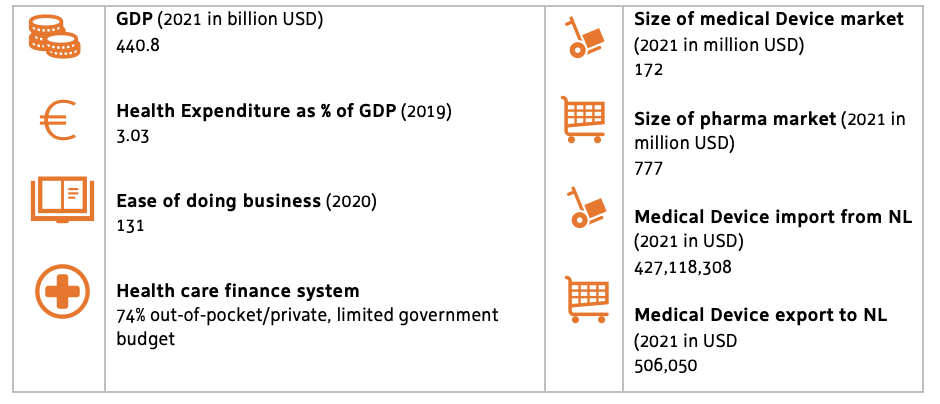Nigeria health care system is highly underdeveloped and fragmented, with government expenditure accounting for less than 15% of national budget, thus resulting in a grossly underfunded health sector and poor insurance coverage. Out of pocket payment for health (74%) accounts for the majority of funding.
In comparison with Sub-Sahara African peers, Nigeria remains worst-performing in maternal and child health. Malaria remains the major disease burden affecting a majority of the population. A population in which prevalence of NCDs/chronic disease is already at 29%. This double burden of disease puts significant pressure on the healthcare system.
With a growing youthful population and a growing middle class, the demand for quality, affordable and accessible health care is in demand. Also, the COVID-19 crisis and subsequent lockdowns exacerbated the pressure on the health systems and the need for significant investment in healthcare. Nigeria’s President, recently signed the Mandatory Health Insurance Act 2022 to ensure Universal Health coverage, match demand and supply of quality health services and pool funds for investment in quality health infrastructure. The Nigeria Sovereign Investment Authority is also funding healthcare investments in Public Private Partners and upgrade of tertiary teaching hospitals.
The demand for healthcare services in Nigeria is expected to grow, over a 5-year period, from US$15 billion in 2018 to over US$18 billion in 2023. The identified gaps in the healthcare system include healthcare infrastructure, telemedicine, health tech, equipment supply and pharmaceuticals, which offer opportunities.
Overview milestones & flagships
Collective Activities to Nigeria
2022
- PharmAccess Foundation Market Study LSH Nigeria
- Health~Holland Digital Meet-up Africa (Kenya and Nigeria) September
- Incoming study visit Nigerian delegation to the Netherlands October
The way forward
Planned activities
- Outgoing Mission to Nigeria

